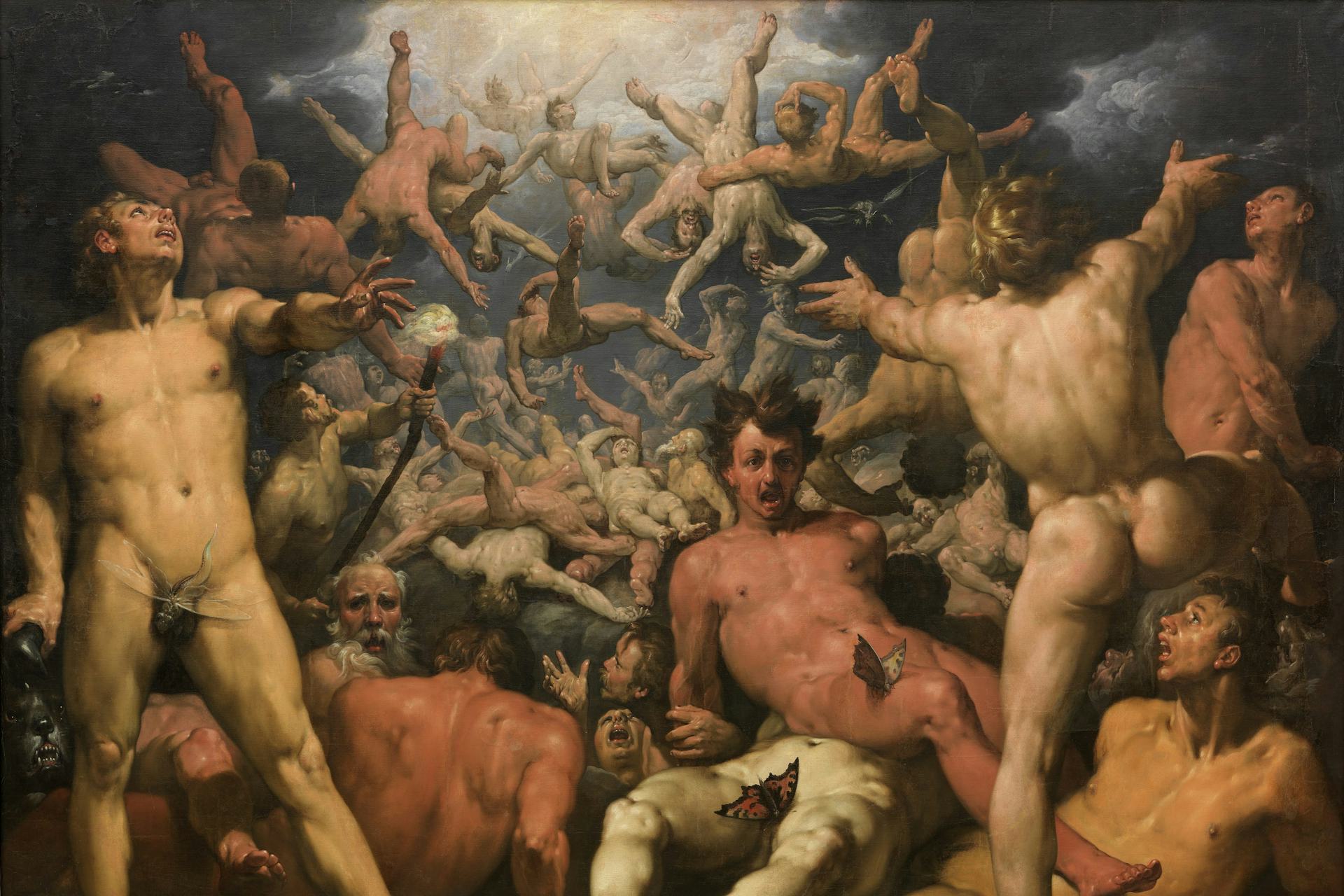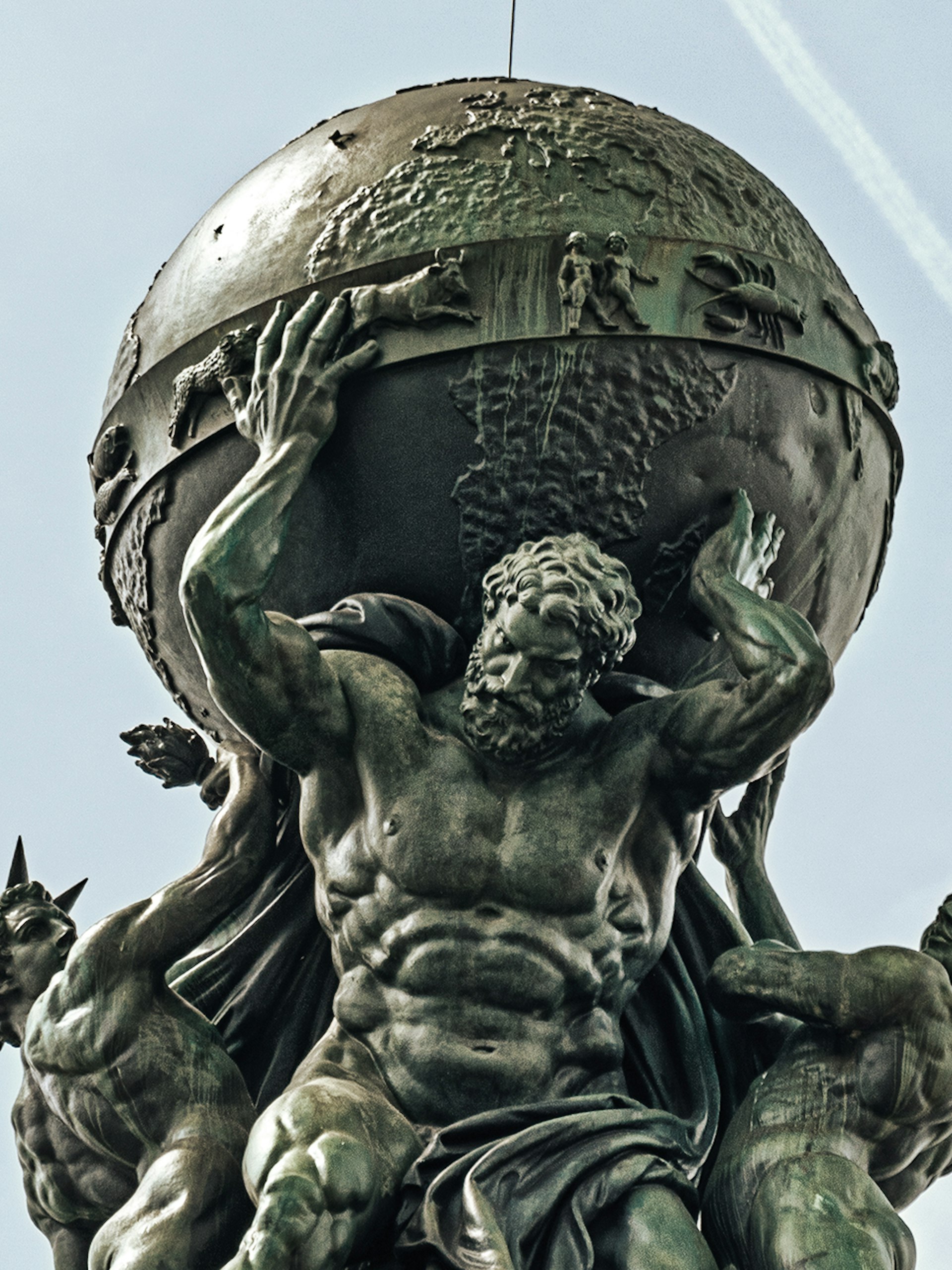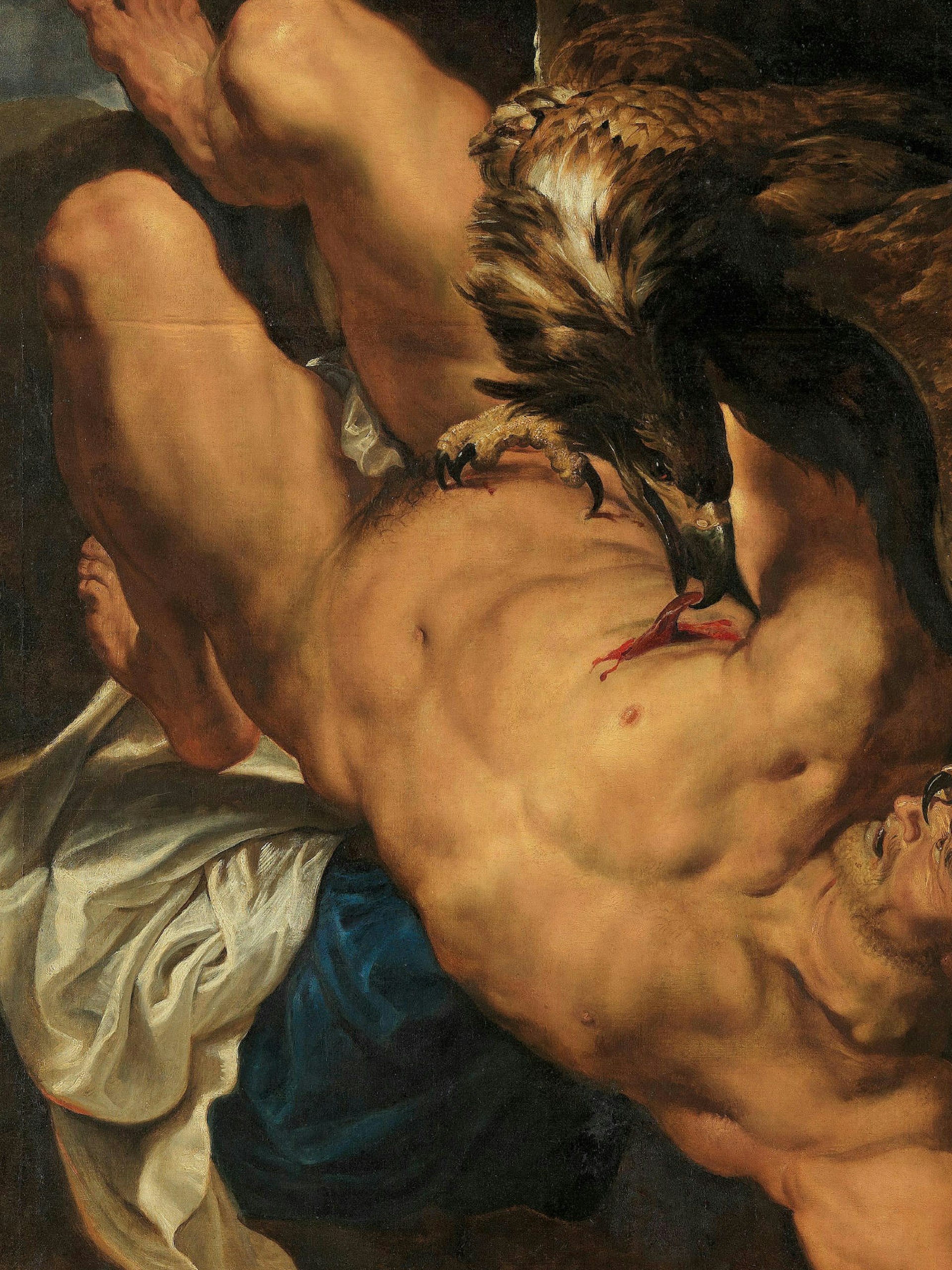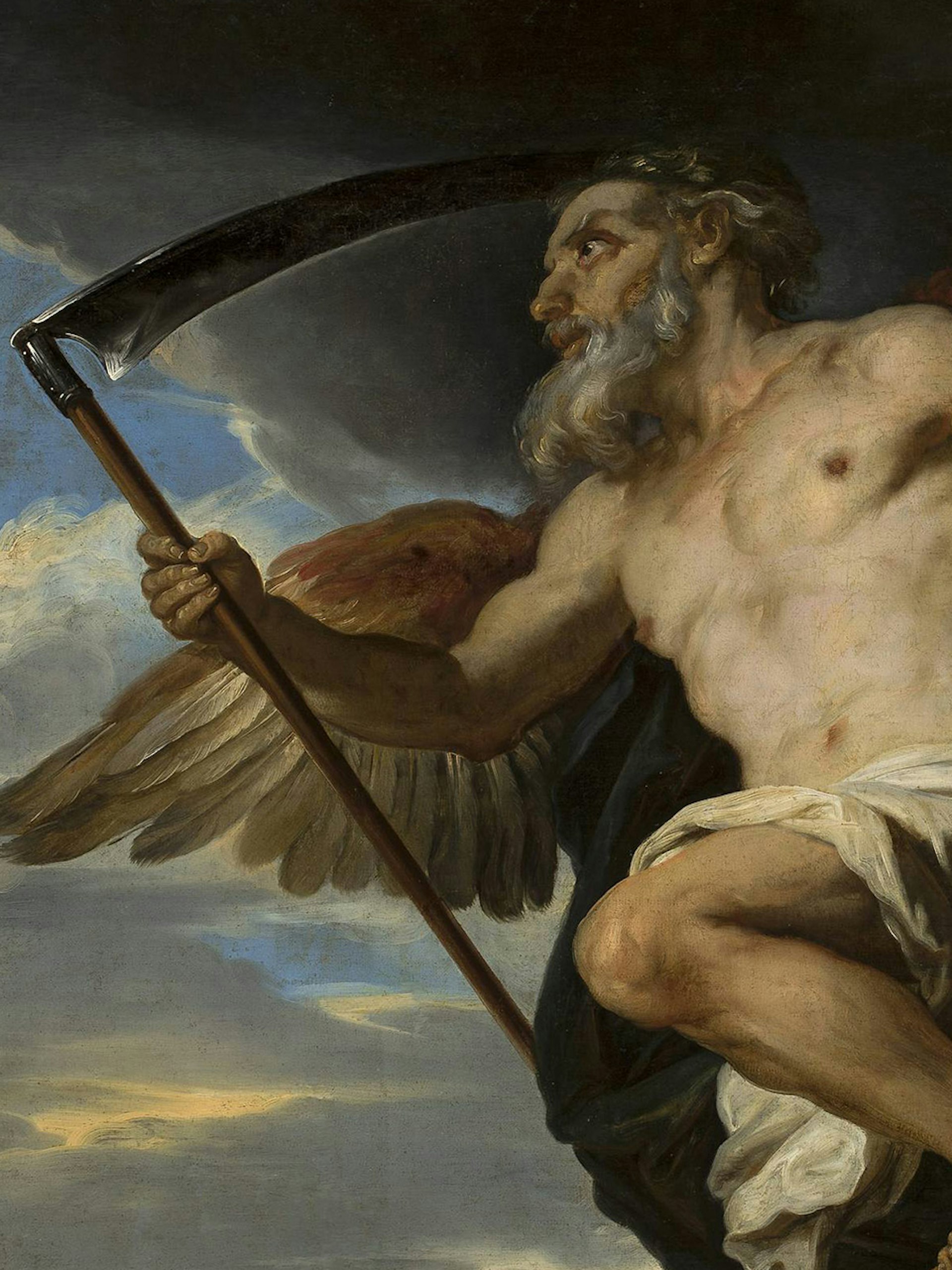Greek Titans

Fall of the Titans by Cornelis van Haarlem (ca. 1588).
Statens Museum of KunstPublic DomainOverview
The Titans were immortal deities who ruled the cosmos before the Olympians. The original twelve Titans—the children of the primordial gods Gaia (earth) and Uranus (heaven)—assumed power by overthrowing their tyrannical father, only to become tyrants themselves.
Cronus, the youngest Titan, became king after usurping Uranus. Fearing a similar fate, he attempted to prevent any revolts against his own power by swallowing his children as soon as they were born. But Zeus, Cronus’ youngest son, managed to escape, and he eventually freed his siblings. Together, they waged a ten-year war against Cronus and the other Titans known as the Titanomachy. In the end, the Titans were defeated; most of them were imprisoned in Tartarus by the new gods, the Olympians—so called because they dwelled atop Mount Olympus.
The Titans included not only the original twelve children of Gaia and Uranus but also some of their descendants, such as Prometheus, Atlas, Metis, and Leto. Though they were sometimes represented as cruel in Greek mythology, the period during which the Titans ruled was nonetheless regarded as a Golden Age. Unlike the Olympians, however, the Titans were almost never worshiped in ancient Greece (an exception is Rhea, the mother of Zeus and the Olympians, who was sometimes worshiped as “Mother of the Gods” or “Great Mother”).
Explore the Titans of ancient Hellenic civilization below, including Cronus, Rhea, Prometheus, and more.


